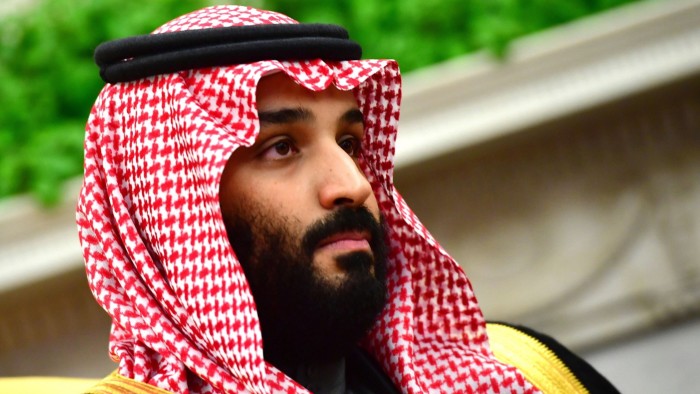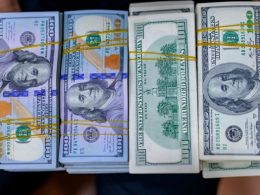This article is an on-site version of our FirstFT newsletter. Subscribers can sign up to our Asia, Europe/Africa or Americas edition to receive the newsletter every weekday. Explore all of our newsletters here
Today’s agenda: Ukraine uses US-made missiles; Chinese ship probed in Baltic incident; Citadel’s European foray; robotics revolution; and world’s priciest shopping street
Good morning. We begin in the Middle East where Arab states concerned by the next US administration’s policies are turning to Saudi Arabia to act as a bridge to Donald Trump.
What’s causing the unease: After Trump named a number of ardently pro-Israel nominees and Iran hawks for key positions, Arab officials worry his incoming administration might approve moves by Israel to annex the occupied West Bank, occupy Gaza or escalate tensions with Tehran.
Why Riyadh?: Apart from the kingdom enjoying political heft in the region, it also enjoys a relationship with Donald Trump. Arab states are banking that these would act as a check on the president-elect’s Middle East policies amid fears that he will pursue a staunchly pro-Israel agenda.
An Arab official said Saudi Arabia’s Crown Prince Mohammed bin Salman would be “key” in influencing Trump’s policies towards ending Israel’s war against Hamas in Gaza and more broadly on Palestinian issues, using the potential for normalisation with Israel as leverage. Read the full report.
-
More appointments: Trump has said he will nominate Cantor Fitzgerald chief and campaign donor Howard Lutnick to run his commerce department. Meanwhile, private equity billionaire Marc Rowan has emerged as a top contender to be Treasury secretary.
-
‘Trump trade’: Investors are betting secretive government contractor Palantir will be among the biggest winners of enhanced federal spending on national security, immigration and space exploration.
Here’s what else we’re keeping tabs on today:
-
Central banks: Christine Lagarde, European Central Bank president, addresses a conference on macroprudential policy in Frankfurt. Bank of England deputy governor Dave Ramsden speaks on monetary policy at the University of Leeds.
-
Economic data: UK and South Africa release inflation data.
-
UK: Equal Pay Day marks the day in the year the Fawcett Society says British women in effect stop earning relative to men.
-
Results: British Land, Britvic, Nvidia, Palo Alto Networks, Sage Group, Severn Trent, Target and TJX report.
Join us from December 4 to 6 at The Global Boardroom, the Financial Times’ award-winning digital conference, and hear leaders in policy, business and finance debate strategies for growth amid continued geopolitical, economic and technological disruption. Register for free.
Five more top stories
1. Ukraine has struck a military target inside Russia using US-made long-range Atacms missiles for the first time since Joe Biden’s administration lifted restrictions on their use, according to Ukrainian officials. The strikes, which hit a large weapons arsenal in Russia’s Bryansk region, came on the 1,000th day of the Kremlin’s full-scale invasion of Ukraine. Read how Russia responded.
2. Investigators of two severed data cables in the Baltic Sea are looking at the movements of a Chinese bulk carrier, the second such probe in recent months amid rising jitters in Europe over potential acts of sabotage. Yi Peng 3, a Chinese-registered vessel, passed close to both the Swedish-Lithuanian and Finnish-German cables around the time each was cut.
3. Ken Griffin’s Citadel Securities is aiming to become a “material” player in Eurozone government bond trading by next year after building a team of traders in Paris and securing valuable access to German debt auctions. The high-speed trading firm, already a major participant in the US Treasury market, is now targeting a similarly prominent role in Europe. But some quarters in Europe are viewing high-frequency trading with scepticism.
4. Austria is expected to drop its veto on Romania and Bulgaria’s full accession to Europe’s Schengen borderless travel zone, paving the way for the two countries to become fully fledged members after more than a decade of disagreement. Despite Austria’s decision, however, the two countries still face one more hurdle.
5. The billionaire Poonawalla family has bought a £42mn building in London’s upmarket Grosvenor Square despite concerns that changes to the UK’s non-dom tax rules would put off wealthy international investors. The deal, concluded in May, came in the same month that Adar Poonawalla, who leads the family’s vaccine business, told the FT that the UK’s tax changes for wealthy non-doms would deter investors from the country.
Join today’s Global M&A Outlook — Americas webinar, organised by the FT in partnership with Datasite, which convenes dealmakers to discuss M&A activity and trends in the Americas.
The Big Read
Machines may be able to perform powerful calculations in an instant but they still struggle with the complexities of the physical world. Now, after years of slow progress, artificial intelligence is transforming the way robots learn to move and navigate environments. They are picking up skills faster than ever and adapting in ways previously thought impossible.
We’re also reading . . .
-
War on science: Trump’s selection of Robert F Kennedy Jr as health secretary is characteristic of his hostility to expertise, writes Anjana Ahuja.
-
US energy: Oil “wildcatters” ended up in charge of Trump’s energy policy to the dismay of climate campaigners.
-
German malaise: Berlin has very largely brought its political and economic dilemmas on itself, writes the Brookings Institution’s Constanze Stelzenmüller.
-
Growth champions: The inaugural FT-Statista ranking highlights European companies with sustained revenue expansion.
Chart of the day
When it comes to trade, protectionism for Donald Trump is not just a long-standing personal belief, but one that he was already dedicated to the last time he was in the White House. But his tariff war will not reduce US trade deficits. On the contrary, it is more likely to lead to inflation, conflict with the Federal Reserve and a loss of trust in the dollar, writes Martin Wolf.

Take a break from the news
From navigating future crises and driving recovery in left-behind regions to the migration, digital currencies and the care economy, here are the year’s best books on economics as selected by Martin Wolf.

Source link









